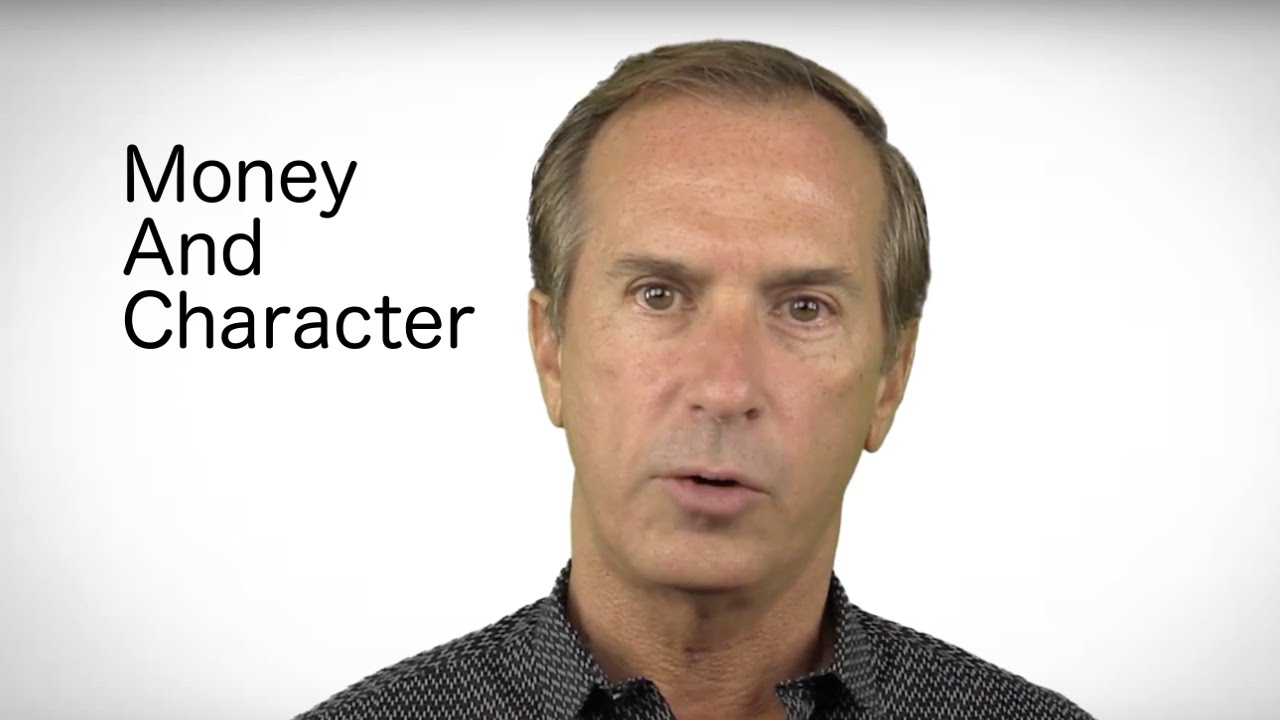Summary
A common mistake made in our society is to confuse net worth and self-worth. There’s nothing more inherently virtuous or moral about those of us who have attained greater wealth.
That might seem self-evident, but there are plenty of mixed signals sent. More successful people do tend to work harder and strive to get to where they are – this hustle and grit can be conflated with intelligence and character all too often. The truth is that who you are when you’re poor is just about the same as who you are when you’re rich. Money is more of a light that illuminates what is already there – warts and all.
The world may worship money in the here and now, but what we remember in the long run is character – how you lived and how you helped others with the gifts you were given. Scripture and literature is riddled with stories of those who let their riches gain dominance over their lives to the detriment of what they truly cared about.
Read on to learn more on how to maintain your grip on your core values and principles – regardless of the number of zeroes in your bank account.
Transcript
Never confuse strength of pocketbook with moral strength. Money doesn’t give you “character” – It simply provides you the freedom to be who you are with less restrictions.
Some people certainly let their negative traits more vividly come to the surface when they come into money. But think about it – are they really any different now? Or were they already jerks before? More than likely, money just gives them the opportunity to be more of one. Think of money as a spotlight that helps illuminate what is already there – just more brightly.
Define Your Core Values and Principles Early On
The take-away here is that you need to figure yourself out today, not at some distant point when you have attained what you deem to be enough money. Be yourself now and let that guide you to the success you seek, rather than counting on success or money or acclamation to let you become the person you want to be. A person’s worth cannot be calculated or tied by determining their net worth.
I admit that it certainly can be somewhat easier to be generous when you are wealthy. You simply have more resources than you can part with to good causes without feeling that same sting in the pocket book. You can also more likely provide your time to good causes because you are more in control of your schedule and how you are free to spend it. But writing a check alone can’t make you into a new person. Even if those of less means donate less as a function of what they are able to part with, the mere sacrifice of giving up a larger percentage of their income can speak as a testament to their character.
Money doesn’t give you intelligence or class or moral certitude – it just gives you money. Plain and simple The rest is up to you – what you do with it, how you manage your time, and how you use your gifts to help others and the causes that you care about.
What money can do is give you the breathing room and space you need to put thought – real thought – into how to be the kind of person you want to be, the best version of yourself. Working multiple jobs, struggling to pay the bills, always on the hustle – it’s little wonder why so many of us, especially the working poor and middle class, can’t really devote much time or thought to helping anyone but ourselves. When you are drowning, it is natural to try to save yourself first before you are worried about the other passengers. Having some degree of financial security gives you your own boat, your own bit of buffer from the storm – one that you can act from to put your principals into motion.
Pay It Forward
As Spider-man famously said, with great power comes great responsibility. The same applies to wealth. Few of us achieve financial independence by giving away more of our income than is prudent. But we must never delude ourselves into thinking we have reached success completely on our own. All of us owe some debt of gratitude to society and all of those who have helped us – from police officers who kept us safe to teachers who opened up our minds, to markets that gave us an open opportunity to compete and make the best of our talents. The least we can do once we have ascended the ladder of opportunity is to extend it to others to benefit as well.
As human beings, we are all buffeted by the same forces. We all are searching for essentially the same objectives in life – meaning, love, friendship. Maintaining some perspective about these commonalities and about the role of chance in assuring our success will help ensure that we stay humble and plugged back into how we can contribute to our communities.
Fortunately, a range of studies have demonstrated that acts of altruism and kindness consistently give people positive feelings of gratitude and accomplishment. In short, the more you give, the better you feel about how you live. You can certainly model this behavior even if you do still have some worries about your bills. Getting into a habit and mindset early on of helping others will help you maintain the same commitment to your community later on when you do hit it big!
The Company You Keep
You would be wise to keep in mind these considerations about wealth and character when it comes to choosing a mate and your social circle as well. It is understandable for high-achieving, successful people to enjoy spending time with each other. It can be better for your commitment to your personal goals to be surrounded with like-minded individuals who also find the challenges of their work invigorating. But don’t put blinders on – remember that a person’s self worth is far more than their net worth. You will likely benefit enormously from socializing with a wide variety of people from different socioeconomic levels.
It’s Not What You Have It’s What You Do
When you have lived long enough – long enough to see loved ones and friends pass – you gain a greater appreciation of how you are looked at over the long run. The columnist David Brooks has discussed how the world frequently pushes values on people that are reflective of building a good resume, rather than the values that reflect well in a eulogy. It’s unlikely that anyone will praise your stock picking acumen or financial savvy when you have passed. What they are likely to remember is how you conducted yourself and how you treated others. It can be hard to live on a daily basis with an intense focus on your legacy, but it is certainly worth considering from time to time – especially toward the end of the year when our thoughts more naturally turn to expressing gratitude and sharing our good fortune with others.
A common trope that holds back many from attaining success is that “making it” means turning your back on where you’re from or becoming an unappealing version of yourself. This is nonsense. As long as you maintain a hold on your personal values that first brought you to success and strive to remain in touch with the people and things you already loved, there is no reason why you can’t be a person of both means and of the same humble character that you were already displaying.
Getting Grounded
Take the time to figure out who you really are and what you care about. This may require some deep introspective thinking removed from the day to day deluge of tasks and requests you are likely inundated with. Spend some time traveling or reading and develop a list of your personal values and priorities in life. If you can clearly articulate what you consider your life to be about, it will be that much easier to keep your priorities in check when you have reached a higher level of success and are more easily able to control the flow of how you spend your time and money. As long as you keep in mind the essential notion that money is a tool to help you on your journey – rather than the journey itself – you are on the right path to cultivating your own strength of character.
Also visit my web site: tonyneumeyer.com and register to receive free trainings articles and more. Also subscribe to my YouTube channel and follow me on Facebook.



